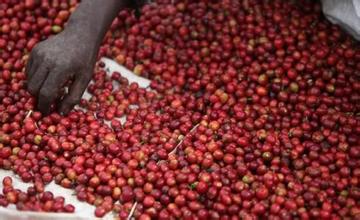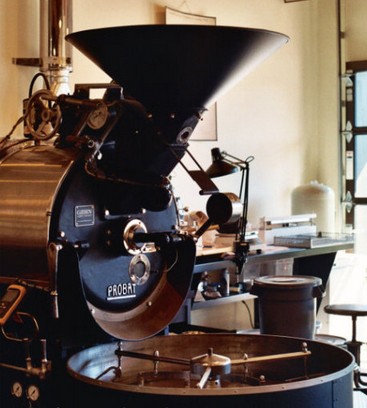Refreshing, giving people an endless aftertaste of Yemeni coffee flavor, characteristics, taste and manor
Yemeni coffee originated from Arabian coffee trees hundreds of years ago, all of which are produced in areas above 3000 feet above sea level. For hundreds of years, the unique planting and production methods of Yemeni coffee have remained almost unchanged. The seedlings of Yemeni coffee trees are first cultivated in nurseries and then transplanted to high elevations. Pesticides and fertilizers are not used in the breeding process. Mature coffee beans are naturally air-dried on coffee trees, shelled with stone grinders and then washed by repeated manual grain selection. The shape of the coffee beans is regular, the size is uniform, the color can range from light green to yellowish brown, and the aroma is rich and long-lasting. The high-quality coffee, whether drunk alone or mixed, is meaningful, refreshing and has an endless aftertaste. There are many varieties of Yemeni coffee, most of which are named after their origin and type, with different flavors, such as fresh wood, tobacco, musk, fruit wine, roasted nuts, cocoa and warm seasonings, especially Moha coffee. At present, the most famous Yemeni Moha coffee on the market are Isemary, Matari, Sanani and other varieties. Sanani coffee has medium-sized beans and fruit wine flavor, produced from Sana'an and surrounding areas. Matari coffee originates from and around Mattar in the west of Sana 'a. it is the best-known moha coffee with unique flavor. Coffee beans have chocolate color, complete grain shape, fruit wine and seasoning flavor. Isimarie coffee is the rarest variety of Moha coffee, produced in the highest altitude of Yemen, the output is very limited, the price is expensive, but there are fruit wine, spices, nuts, malt and other flavors, the quality is higher than the Matari and Sanani coffee, is the best coffee in the world. In addition, Xilazi and Zamarni are also famous coffee brands, which are produced in the high mountains along the Sana'a-Hodeida highway and in the Zamar region.

Important Notice :
前街咖啡 FrontStreet Coffee has moved to new addredd:
FrontStreet Coffee Address: 315,Donghua East Road,GuangZhou
Tel:020 38364473
- Prev

Strong aroma of Tanzanian coffee flavor taste manor boutique coffee beans introduction
Tanzania is one of the birthplaces of ancient humans. BC had trade with Arabia, Persia, India and other places. In the 7th and 8th century, Arabs and Persians immigrated in large numbers. The Arabs established the Islamic kingdom at the end of the 10th century, and the Persians established the Zanzibar empire on the eastern coast of the mainland. [3] in 1886 Tanganyika inland was placed under the German sphere of influence, 19
- Next

Strong but not bitter, fragrant but not strong, slightly fruity Yunnan coffee flavor, characteristics, taste and manor
The western and southern parts of Yunnan Province are located between 15 N and the Tropic of Cancer, most of which are 1000-2000 meters above sea level. The topography is dominated by mountains and slopes, with large ups and downs, fertile soil, sufficient sunshine, rich rainfall and large temperature difference between day and night. These unique natural conditions form the special taste of Yunnan small-grain coffee, which is strong but not bitter, fragrant but not strong, slightly fruity. As early as fifty years
Related
- Detailed explanation of Jadeite planting Land in Panamanian Jadeite Manor introduction to the grading system of Jadeite competitive bidding, Red bid, Green bid and Rose Summer
- Story of Coffee planting in Brenka region of Costa Rica Stonehenge Manor anaerobic heavy honey treatment of flavor mouth
- What's on the barrel of Blue Mountain Coffee beans?
- Can American coffee also pull flowers? How to use hot American style to pull out a good-looking pattern?
- Can you make a cold extract with coffee beans? What is the right proportion for cold-extracted coffee formula?
- Indonesian PWN Gold Mandrine Coffee Origin Features Flavor How to Chong? Mandolin coffee is American.
- A brief introduction to the flavor characteristics of Brazilian yellow bourbon coffee beans
- What is the effect of different water quality on the flavor of cold-extracted coffee? What kind of water is best for brewing coffee?
- Why do you think of Rose Summer whenever you mention Panamanian coffee?
- Introduction to the characteristics of authentic blue mountain coffee bean producing areas? What is the CIB Coffee Authority in Jamaica?

